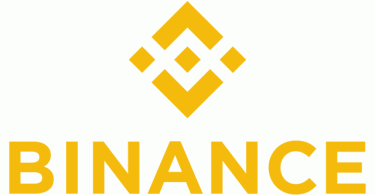UNDP has been in Nigeria since the country became independent in 1960 providing capacity building and policy development support to the Federal Government of Nigeria in areas of Governance & Peace Building, Inclusive growth and Sustainable Development.
Advertisement
What Employers Are Offering
- ✔ Employer-provided health & medical insurance
- ✔ Visa sponsorship & legal work authorization
- ✔ Relocation assistance & settlement support
- ✔ Long-term employment & benefit coverage
- ✔ Permanent residency pathways (eligible roles)
- Job Type:Full Time
- Qualification:BA/BSc/HND
- Experience:2 years
- Location: Borno
- Job Field: NGO/Non-Profit
Background
Advertisement
Insurance & Worker Protection Requirements
Before visa approval, many employer-sponsored programs require proof of medical coverage, workplace protection, and relocation compliance. Select the area you want to review:
Advertisement
- Given the humanitarian current crisis in Nigeria, OCHA must scale up its support to the Humanitarian Coordinator in mobilization and coordination of an effective and principled humanitarian response.
- OCHA is particularly concerned about vulnerable communities and those at risk due to current conflict. Under the leadership of the Humanitarian Coordinator for Nigeria, OCHA maintains an office in Abuja and a field presence in Borno, Adamawa and Yobe states in Northeast, Nigeria.
- OCHA’s mission is to mobilize and coordinate effective and principled humanitarian action in partnership with national and international actors to:
- Alleviate human suffering in disasters and emergencies
- Advocate for the rights of people in need
- Promote preparedness and prevention
- Facilitate sustainable solutions.
- In December 1991, the General Assembly adopted Resolution 46/182 designed to strengthen the United Nation’s response to both complex emergencies and natural disasters. In addition, it aimed at improving the overall effectiveness of the UN’s humanitarian operations in the field.
- Under the guidance and direct supervision of the Team Leader of the ISCG Coordinator, the HAO/Cash Coordinator will ensure effective and efficient support on all activities related to cash and Inter-sector Coordination while maintaining full confidentiality in all aspects of her/his assignment, maintenance of procedures, management of information flow, follow up on deadlines and commitments made.
- The HAO/Cash Coordinator will work in close collaboration with the UNOCHA team in Nigeria to support the humanitarian community (UN Agencies and partners) to ensure efficient flow of information, coordination, advocacy, and reporting.
Duties and Responsibilities
- Support the functioning of the ISCG
- Provide strategic co-coordination role of the Cash Working Group (CWG)
- Information Collection in support of Humanitarian Analysis and Response,
- Information Sharing
- Monitoring and Reporting
- Under the leadership of ISCG Coordinator, the HAO/Cash Coordinator will be responsible for the following duties:
Overall Coordination
- Monitors, analyses and reports on humanitarian response and developments, disaster relief/management programmes or emergency situations in the country.
- Assists or leads, as appropriate, in preparing OCHA reports, studies, background papers, policy guidelines, correspondence, presentations, policy guidelines, parliamentary documents, etc.
- Organizes and prepares studies on humanitarian, emergency relief and cash-related issues; organizes follow-up work, including inter-agency technical review meetings to support policy development work and decision-making on important issues; and ensures the implementation of recommendations from relevant studies.
- Leads and/or participates in large, complex projects, assessments, or other missions; coordinates international humanitarian/emergency assistance for complex emergency/disaster situations; prepares situation reports to the international community, apprising of situation to date and specifying gaps; unmet requirements.
- Assists national government counterparts in capacity-building for handling emergencies.
- Establishes and maintains contacts with government officials, other UN agencies, nongovernmental organizations, diplomatic missions, media, etc.; ensures appropriate mechanisms to facilitate collaboration and exchange of information, both in and outside the UN system, including on early warning and contingency planning, etc.
- Ensure the safeguarding of humanitarian principles, humanitarian access, and effective delivery of humanitarian assistance; keep abreast of the latest developments; liaise with other humanitarian organizations, donors, etc.; ensure appropriate monitoring and reporting mechanisms, and provide information and advice on a range of related issues.
- Organizes and participates in work groups, meetings, conferences, and consultations with other agencies and partners on humanitarian and emergency cash-related matters.
- Performs other duties as required.
Cash Coordination
- Provides strategic co-leadership role of the Cash Working Group (CWG) and promotes the group an inclusive platform for Cash and Voucher Assistance (CVA) and Multipurpose Cash (MPC) coordination.
- Leads strategic linkage and supports the CWG in implementing the priorities of the humanitarian coordination mechanism, including the (HCT, ISCG, sectors working groups) on CVA and MPC.
- Coordinates the integration of CVA into the HPC process (HNO and HRP), including the correct use of Section 1.6 on MPC.
- Monitors, analyses, and reports the scale-up of CVA and MPC in the humanitarian response, including (HRP, Project Module, e.t.c)
- Based on evidence – cash feasibility study or survey- advocates for the scale-up of CVA and MPC in CERF, Humanitarian Pool Funds, e.t.c, where applicable and appropriate.
- Strengthen the operational environment for CVA through an effective and efficient partnership between the humanitarian community, the relevant government (ministries, agencies) and donors.
- Work with the appropriate actors (OCHA Access, CMCoord, Military, EFCC, INGO Forum e.t.c) to overcome bureaucratic challenges with the movement of/cash transfers in the deep field.
- Work with the AAP Working to ensure feedback from the CVA beneficiaries is discussed at the CWG and ISCG for corrective actions.
- As part of the regular mapping of operational information on the humanitarian response, ensure transparent reporting of CVA and MPC through the sectoral 5ws and cash dashboard.
Impact of Results
- The key results impact the overall coordination of emergency and humanitarian assistance and facilitate operational agencies/organizations to achieve their core objectives and build strong partnerships with relevant stakeholders, including OCHA. Specifically, the impact will include:
- Humanitarian response is well coordinated in a principled manner and organized based on clearly identified needs and priorities as identified by affected populations.
Job Knowledge / Technical Expertise
- Possesses basic knowledge of organizational policies and procedures relating to the position and applies them consistently in the tasks
- Fundamental knowledge and understands of the main processes and methods of work regarding to the position
- Strives to keep job knowledge up to date through self-directed study and other means of learning
- Demonstrates good knowledge of Information Communication Technology (ICT) and good writing / reporting skills and applies it in work assignments.
- Promoting learning and knowledge management/sharing are the responsibility of each staff member:
Required Skills and Experience
Education:
- Master’s Degree or equivalent in Political Science, Sociology, Law, International Relations, or other related fields.
- A relevant first level university degree with qualifying experience may be accepted in lieu of the advanced university degree.
Experience:
- Up to two (02) years of relevant professional experience, preferably in complex emergency and inter-agency contexts particularly the Northeast of Nigeria, dealing with relief and transitional issues.
- Familiarity with UN policies, rules, and procedures, particularly in relation to humanitarian response and coordination, and knowledge of institutional mandates, policies and guidelines pertaining to humanitarian assistance, especially the humanitarian reform agenda.
- Ability to research, analyze, evaluate, synthesize information, network, and build partnership.
- Ability to express, clearly and concisely, ideas and concepts in written and oral form.
- Experience in the usage of computers and office software packages (MS Word, Excel, etc).
Core Competencies
Professionalism:
- Knowledge of a range of humanitarian assistance, emergency relief and related human rights issues, including approaches and techniques to address difficult problems.
- Analytical capacity and in particular the ability to analyze and articulate the humanitarian dimension of issues which require a coordinated UN response. Ability to identify issues and judgment in applying technical expertise to resolve a wide range of problems.
- Ability to conduct research, including ability to evaluate and integrate information from a variety of sources and assess impact on the humanitarian rights situation in assigned area.
- Ability to work under extreme pressure, on occasion in a highly stressful environment; ability to provide guidance to new/junior staff; ability to provide advice to senior level officials.
- Shows pride in work and in achievements; demonstrates professional competence and mastery of subject matter; is conscientious and efficient in meeting commitments, observing deadlines, and achieving results; is motivated by professional rather than personal concerns; shows persistence when faced with difficult problems or challenges; remains calm in stressful situations.
- Takes responsibility for incorporating gender perspectives and ensuring the equal participation of women and men in all areas of work. Demonstrate corporate knowledge and sound judgment.
Communication:
- Speaks and writes clearly and effectively; listens to others, correctly interprets messages from others and responds appropriately; asks questions to clarify and exhibits interest in having two-way communication; tailor’s language, tone, style and format to match audience; demonstrates openness in sharing information and keeping people informed.
Planning & Organizing:
Advertisement




